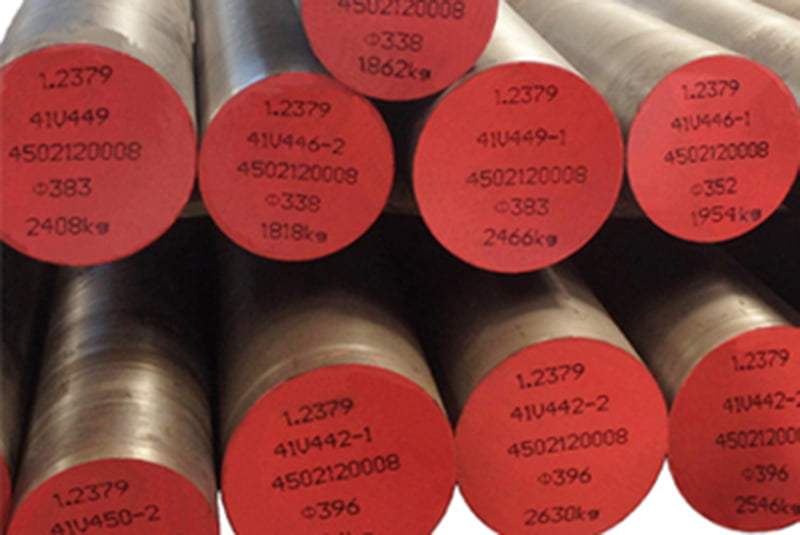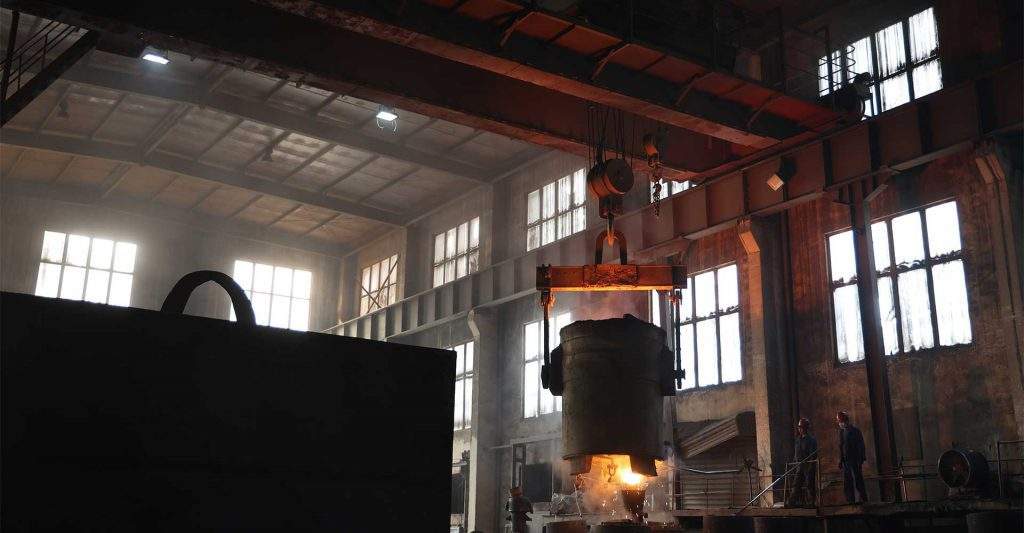Welcome to My Blog!
Before we dive into the content, I’d love for you to join me on my social media platforms where I share more insights, engage with the community, and post updates. Here’s how you can connect with me:
Facebook:https://www.facebook.com/profile.php?id=100085401406977
LinkedIn:https://www.linkedin.com/showcase/102680001/admin/dashboard/
Now, let’s get started on our journey together. I hope you find the content here insightful, engaging, and valuable.
Introduction
D2 steel is one of the most widely used tool steels, renowned for its hardness, wear resistance, and durability. With a high carbon and high chromium content, D2 steel is often chosen for making cutting tools, dies, and industrial knives. Understanding the D2 steel composition is crucial for anyone working in industries that demand precision and reliability. In this detailed guide, we will explore the composition of D2 steel, its properties, advantages, applications, and more. Whether you are a metallurgist, a manufacturer, or simply someone interested in high-performance materials, this article will provide you with everything you need to know about D2 steel composition.
What is D2 Steel?

Overview of D2 Steel Composition
D2 steel is a high-carbon, high-chromium tool steel that is air-hardened and capable of achieving high hardness after heat treatment. It belongs to the cold work tool steel category, which means it is primarily used in applications where the temperature does not exceed 200°C (392°F). The D2 steel composition makes it highly resistant to wear and abrasion, making it ideal for tools and dies that undergo heavy use.
Key Elements in D2 Steel Composition
The unique properties of D2 steel are derived from its specific chemical composition. The primary elements in D2 steel include:
- Carbon (C): 1.40% to 1.60%
- Chromium (Cr): 11.00% to 13.00%
- Molybdenum (Mo): 0.70% to 1.20%
- Vanadium (V): 0.10% to 0.30%
- Manganese (Mn): 0.10% to 0.60%
- Silicon (Si): 0.10% to 0.60%
- Phosphorus (P): Max 0.03%
- Sulfur (S): Max 0.03%
This composition gives D2 steel its high hardness and abrasion resistance, making it suitable for demanding industrial applications.
The Role of Chromium in D2 Steel Composition
Chromium is a crucial element in D2 steel composition, contributing to its excellent wear resistance and corrosion resistance. With over 11% chromium, D2 steel is classified as semi-stainless, meaning it has better corrosion resistance than many other tool steels, though it is not completely stainless. The high chromium content also aids in forming hard carbides, which enhance the steel’s durability and cutting performance.
The Importance of Carbon in D2 Steel Composition
Carbon is another vital element in D2 steel, responsible for its hardness and strength. The high carbon content allows D2 steel to be hardened to a significant degree, making it ideal for tools that require sharp edges and long-lasting durability. However, the high carbon also makes D2 steel more brittle compared to low-carbon steels, which is something to consider depending on the application’s demands.
Properties of D2 Steel
Mechanical Properties of D2 Steel Composition
The D2 steel composition gives it a unique set of mechanical properties that make it suitable for various industrial applications. These properties include:
Hardness: D2 steel can be hardened to a range of 55-62 HRC (Rockwell Hardness), depending on the heat treatment process.
Wear Resistance: The high chromium and carbon content provide excellent resistance to wear and abrasion.
Toughness: While D2 steel is not as tough as some other tool steels, its balance of hardness and wear resistance makes it ideal for cutting and shearing applications.
Corrosion Resistance: D2 steel offers moderate corrosion resistance, which is superior to many other tool steels but not as high as stainless steels.
Heat Treatment of D2 Steel
The heat treatment process is crucial for optimizing the properties of D2 steel. Proper heat treatment can maximize the hardness, toughness, and wear resistance of the material. The typical process involves:
Preheating: Gradually heating the steel to a temperature range of 750-800°C (1382-1472°F).
Austenitizing: Heating the steel to a temperature range of 1000-1050°C (1832-1922°F) to transform its structure to austenite.
Quenching: Rapidly cooling the steel in air or oil to achieve the desired hardness.
Tempering: Reheating the steel to a lower temperature (150-550°C or 302-1022°F) to reduce brittleness while maintaining hardness.
Applications of D2 Steel
Common Uses of D2 Steel in Industry
Due to its excellent properties, D2 steel is used in a variety of industrial applications, including:
Cutting Tools: D2 steel is commonly used to make cutting tools such as knives, shear blades, and punches, where high wear resistance is essential.
Dies: The steel’s hardness and wear resistance make it suitable for forming dies used in the stamping and forming of metals.
Industrial Knives: D2 steel is widely used in the production of industrial knives that require long-lasting sharpness and durability.
Mold Tools: D2 steel is also used in mold tools for plastic and rubber manufacturing, where precision and wear resistance are critical.
Advantages of Using D2 Steel
The advantages of using D2 steel in various applications include:
Long Tool Life: The high wear resistance of D2 steel extends the lifespan of tools and dies, reducing the need for frequent replacements.
Precision Cutting: The ability to achieve high hardness allows D2 steel to maintain sharp edges, making it ideal for precision cutting applications.
Cost-Effective: While D2 steel is more expensive than some other tool steels, its durability and long tool life can result in cost savings over time.
Versatility: D2 steel’s balance of hardness, toughness, and wear resistance makes it suitable for a wide range of applications, from cutting tools to dies and molds.
D2 Steel Composition Table

In this section, we provide a detailed table summarizing the D2 steel composition and its effects on the steel’s properties.
| Element | Composition (%) | Effect on D2 Steel |
|---|---|---|
| Carbon (C) | 1.40% – 1.60% | Increases hardness and strength, contributes to carbide formation |
| Chromium (Cr) | 11.00% – 13.00% | Provides wear and corrosion resistance, forms hard carbides |
| Molybdenum (Mo) | 0.70% – 1.20% | Enhances toughness, hardenability, and wear resistance |
| Vanadium (V) | 0.10% – 0.30% | Improves wear resistance and toughness |
| Manganese (Mn) | 0.10% – 0.60% | Increases hardenability and strength |
| Silicon (Si) | 0.10% – 0.60% | Enhances strength, toughness, and oxidation resistance |
| Phosphorus (P) | Max 0.03% | Generally considered an impurity, should be kept low |
| Sulfur (S) | Max 0.03% | Generally considered an impurity, should be kept low |
This table highlights the key elements in D2 steel composition and their effects on the material’s properties, helping to explain why D2 steel is so widely used in demanding applications.
Conclusion
D2 steel composition is carefully engineered to provide a balance of hardness, wear resistance, and toughness. These properties make it an ideal choice for a wide range of industrial applications, from cutting tools to dies and molds. Understanding the composition and characteristics of D2 steel allows manufacturers and users to make informed decisions about its suitability for specific tasks. Whether you are involved in manufacturing, tool-making, or simply interested in materials science, D2 steel is a material worth knowing in depth.
FAQ
What makes D2 steel different from other tool steels?
D2 steel’s high carbon and chromium content give it superior wear resistance and hardness compared to many other tool steels, making it ideal for applications that require durable and sharp tools.
Can D2 steel rust?
While D2 steel has better corrosion resistance than many other tool steels, it is not completely rust-proof. Proper care and maintenance are required to prevent corrosion, especially in humid environments.
How hard can D2 steel get?
D2 steel can achieve a hardness of up to 62 HRC, depending on the heat treatment process. This makes it one of the hardest tool steels available.
Is D2 steel good for knife making?
Yes, D2 steel is widely used in knife making due to its excellent edge retention, hardness, and wear resistance. However, it can be more challenging to sharpen compared to softer steels.
How does the heat treatment process affect D2 steel?
Heat treatment is crucial for optimizing the properties of D2 steel. It can significantly increase the hardness and wear resistance of the material, making it more suitable for demanding applications.
